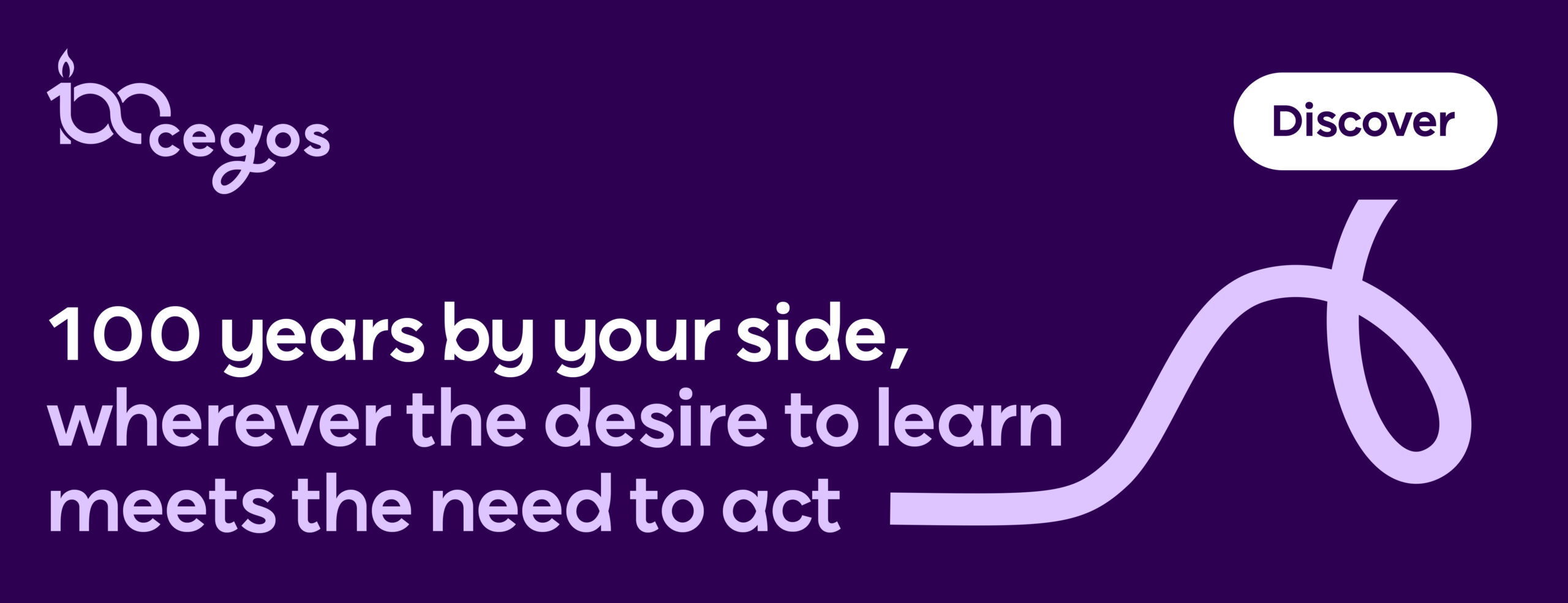
The Digital Learning Excellence Awards are organised every year by Cegos France in partnership with AEF info.fr. Not only do they reward the best digital and blended learning systems, they also allow us to set a real benchmark of market trends.
It has been no surprise that the 2021 trends were impacted by the COVID context. This has speeded up the digital transformation of learning.
The remote conversion of “physical training” has enabled things to evolve in several directions. Organisations have been able to ensure the continuity of their learning systems, as well as readapting their offers in terms of formats, courses and associate skills such as remote management, working in hybrid mode, designing and leading a virtual class, etc.
With these factors, we wanted to recognise the significant evolution by creating a new category for this 11th edition: "digital transformation of learning".

This year we have identified three main trends:
- Human support in the implementation of training outcomes.
- The rise of storytelling to engage the digital learner.
- The growing maturity of virtual and augmented reality.
First trend: human support in the implementation of training.
Previously, a distinction was made between face-to-face and distance learning in training courses, with human support devoted to face-to-face teaching. Nowadays, the distinction has moved to synchronous and asynchronous training. An interesting point is that collective synchronous times are increasingly coupled with asynchronous intersessions devoted to individual application, via projects, case studies or time to reflect.
We can see that the sector places a great deal of emphasis on human support in general… and in particular in these asynchronous moments. The transposition into the workflow is based on exchanges between peers, social learning, tutoring and even "help desks" to assist with implementation.
Companies are thus seeking to create learning ecosystems that contributes to the development of employee skills AND generate performance in the workplace.
Second trend: storytelling to engage the digital learner.
Storytelling is becoming a very important aspect of digital learner’s engagement. Storytelling is almost becoming a modality, a common running thread to draw the participant into a story, a quest, or a challenge for learning purposes.
Storytelling is even used in regulatory training courses. This is a proof if any were needed, of the impact of this trend in terms of knowledge acquisition.
Gamification relies on emotional staging and cinematographic resources to encourage the attention and assiduity of participants throughout the course.
Third trend: growing maturity of virtual and augmented reality
Virtual or augmented reality projects have moved from the seduction stage to a certain maturity with real immersion applications of jobs and techniques.
While it is clear that this technology has proven itself over the last few years, particularly in technical environments, its use is becoming more professional. On one hand, to provide answers to travel constraints linked to health crises (factory visits, repairing automatons, etc.) and, on the other hand, to encourage emotional anchoring (e.g. fire training).
Two salient trends to be pointed out:
Beyond these three trends, I would like to conclude with two salient points that stand out in this edition of the Digital Learning Excellence Awards:
- A feeling of blues: The analysis and exploitation of learning data - and the resulting adaptive learning - did not confirm its take-off in the 2020 edition. It is however a strategic subject for the L&D function: learner experience, personalisation issues, culture of measurement… It is a subject that we will follow closely next year.
- A crush: I would like to mention the EDTECH ecosystem, which is flourishing and bringing many technological innovations for learning. For example, mobile applications are present in almost half of the devices in the 2021 edition.
This year, the jury chaired by Patrick BENAMMAR, Learning & Development VP of the Renault Group, awarded SAFRAN, an international high-tech group, the Grand Prize of the Digital Learning Excellence Awards 2021 for its training system: "Industrialisation of multimodal management". This strategic project is part of Safran University's transformation plan to overhaul training around employee skills development and make Safran a learning company.
We look forward to next year’s edition of the Digital Excellence Learning Awards to reward once again the richness and diversity of distance and blended learning deployed in the world of companies and organisations… and to learn from it!










